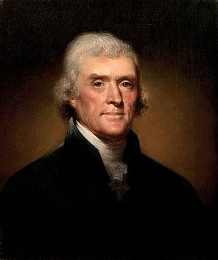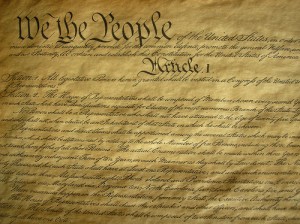Constitution
NSA surveillance – circuits split

The mainstream media are buzzing today with a breathless report. According to them, the NSA surveillance program got a new lease on life. Specifically, another federal judge, this time in New York State, said the massive NSA surveillance program does follow the Constitution. This other judge uses highly dubious reasoning. All he has done is set up a split between circuits. Thus the NSA surveillance program will come before the Supreme Court.
NSA surveillance – a different complaint
Last week, readers will recall, Judge Richard J. Leon enjoined the National Security Agency from collecting any more metadata about the telephone calls Americans make. Judge Leon sits on the U.S. District Court for the District of Columbia. He had two cases before him, cases that Larry Klayman of Judicial Watch filed against the de facto President. Judge Land ruled that:
- Klayman and Judicial Watch had standing to sue the government to stop the program.
- Klayman was highly likely to prevail on the merits.
- Klayman’s fellow plaintiffs will suffer irreparable harm if the NSA surveillance program does not stop at once.
Judicial Watch weren’t the only ones to complain about the NSA surveillance program. The American Civil Liberties Union filed a suit of their own. They named James Clapper as defendant. You remember James Clapper. Remember when he wiped beads of sweat off his shiny bald pate as he stammered, “N-n-not wuh-wuh-wittingly” to a Member of Congress? That member asked him point-blank whether the NSA were snooping on American’s telephone calls. We since learned Clapper was lying through his teeth.
The ACLU keeps a separate page where anyone can download their complaint. Naturally the ACLU complain the NSA surveillance program scoops up their telephone calls, too. That’s how they gain standing, or the right to sue.
Today Judge William Pauley of the New York District granted summary dismissal of the ACLU case. In so doing, he said the NSA surveillance program is perfectly legal. Among other things, the judge said:
The right to be free searches and seizures is fundamental, but not absolute … Every day, people voluntarily surrender personal and seemingly private information to transnational corporations, which exploit the data for profit. Few think twice about it, even though it is far more intrusive than bulk telephony metadata collection …
Here is the key point the judge made:
A Court’s solemn duty is ‘to reject as false, claims in the name of civil liberty which, if granted, would paralyze or impair authority to defend [the] existence of our society, and to reject as false, claims in the name of security which would undermine our freedoms and open the way to oppression.
Analyzing the judge’s decision
Judge Pauley is wrong on both counts.
First, take his point about those who “voluntarily surrender personal and seemingly private information.” Why doesn’t the judge acknowledge privacy policies that all companies must keep? What customer ever expects the telephone company to share his billing records with some advertiser, unless said company warns him up-front?
Judge Pauley of course relies on the infamous Smith case. In 1979, the Supreme Court ruled that third parties can turn information over to the government without asking permission from you, the subscriber. Judge Leon seemed to be telling Mr. Klayman, “I urge you to tell the Supreme Court to change their rule.” If the Supreme Court revisits Smith and either distinguishes or overturns it, it wouldn’t be the first time. Compare Brown v. Topeka Board of Education to Plessy v. Ferguson. And consider this: had the Supreme Court revisited Dred Scott v. Sandford after handing down that disastrous decision, they might have averted the War Between the States.
The point: the Constitution must mean more than “whatever a court says it means any time it says it.” Furthermore, Judge Leon, in the District of Columbia circuit, ruled one way. Judge Pauley, in the Second Circuit, today ruled another way. Those two judges have, between them, split the circuits. If that split holds, meaning if the two Circuits rule differently, the Supreme Court must intervene.
Now consider the judge’s second point. A court, he says, must “reject as false, claims in the name of civil liberty which, if granted, would paralyze or impair authority to defend [the] existence of our society.” That would shock Benjamin Franklin. In a reply to the then Royal Governor of Pennsylvania, he famously wrote,
Those who would give up essential Liberty, to purchase a little temporary Safety, deserve neither Liberty nor Safety.
He surely would agree: a society that would suppress essential liberty to claim authority to defend its own existence, has no legitimate defense of either its existence or its actions. Franklin called on frontiersmen to arm themselves. Today he would call on the society to let its members arm themselves to defend themselves against any external threat.
Nor can Judge Pauley, or Shiny Pate Clapper, or anyone else say the Muslim threat trumps the Fourth Amendment. Thomas Jefferson had a Muslim threat to deal with. He dealt with it without suppressing essential liberty. And he would never even sign into law anything that smacked of the John Adams-era Alien Enemies Act and Sedition Act. The NSA surveillance program recalls both in its scope and policy.
CNAV would hope the Supreme Court would uphold the Constitution. Today’s government disarms its populace and then tries to defend them. They can’t do that without making them prisoners in and of their own country. In this sense do the opponents of this policy rightly say, “The terrorists have won!” The American people will win if, instead, they make real this likely apocryphal quote from a Japanese general: that the Japanese Empire never dared invade the United States, in fear they would find a gun behind every blade of grass. A gun in the hands of a free citizen, not some drone who sheepishly accounts to the government, actively or passively, for every telephone call he makes. That’s why the courts should scrap the NSA surveillance program.
[subscribe2]
Terry A. Hurlbut has been a student of politics, philosophy, and science for more than 35 years. He is a graduate of Yale College and has served as a physician-level laboratory administrator in a 250-bed community hospital. He also is a serious student of the Bible, is conversant in its two primary original languages, and has followed the creation-science movement closely since 1993.
-

 Civilization3 days ago
Civilization3 days agoWhy Europe Shouldn’t Be Upset at Trump’s Venezuelan Actions
-

 Executive4 days ago
Executive4 days agoHow Relaxed COVID-Era Rules Fueled Minnesota’s Biggest Scam
-

 Constitution5 days ago
Constitution5 days agoTrump, Canada, and the Constitutional Problem Beneath the Bridge
-

 Christianity Today3 days ago
Christianity Today3 days agoSurprising Revival: Gen Z Men & Highly Educated Lead Return to Religion
-

 Civilization4 days ago
Civilization4 days agoThe End of Purple States and Competitive Districts
-

 Executive3 days ago
Executive3 days agoWaste of the Day: Can You Hear Me Now?
-

 Executive4 days ago
Executive4 days agoWaste of the Day: States Spent Welfare in “Crazy Ways”
-

 Guest Columns5 days ago
Guest Columns5 days agoWhy We Need Lent












[…] case, this time in New York City. There, Judge William Pauley summarily dismissed the case. He found the NSA surveillance program perfectly lawful. He even said, incredibly, that courts must reject […]